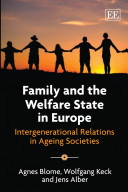Låst studiebogsformat
EPUB
EPUB er et nyere og meget fleksibelt e-bogs format, som kan indeholde både tekst og lyd og være krypteret (låst).
Når du henter en låst studiebog fra Nota, vil den være i EPUB formatet, og skal låses op med en kompatibel læse-app, såsom Thorium Reader.
Læs guide til brug af låste studiebøger i EPUB format
Lydbogsformater
MP3
MP3 er et standard lydformat uden tekst, der kan downloades og afspilles på en MP3-afspiller, computer, smartphone og tablet.
Daisy
Daisy er et lydbogsformat med tekst, der via en daisyafspiller, gør dig i stand til at læse og lytte til en bog samtidig. Dog er ikke alle Notas bøger med tekst.
CD
En lydbog på CD bliver sendt direkte hjem til dig og kan afspilles på en daisyafspiller.
Læs mere om lydbogsformater
E-bogsformater
PDF-fil
En PDF udgave af en e-bog er en digital indscanning af bogen, der kan downloades og åbnes på både computer, smartphone og tablet.
Indscannet e-bog
En indscannet e-bog er ligesom PDF-filformatet en digital indscanning af bogen. Den kan være i enten en let eller grundigt bearbejdet udgave. En indscannet e-bog fås oftest i både Word og PDF-format.
Standard e-bog
En standard e-bog er en bearbejdet bog, der kan downloades i forskellige filformater (html, docx og rtf) til computer, smartphone eller tablet.
E-bog for synshandicappede
En e-bog for synshandicappede er en bearbejdet udgave af en bog, der giver særlige navigationsmuligheder for synshandicappede. Denne type format kan downloades som en word-fil (doc) på en computer.
Læs mere om E-bogsformater
Punktbogsformater
Almindelig punktbog
En almindelig punktbog er en trykt bog, der er skrevet med punktskrift (Braille), og som bliver sendt direkte hjem til dig.
Digital Braille
Digital Braille-formatet er en digital punktskriftsfil, som kan downloades og åbnes på en digital punktbogslæser, fx en Pronto.
Læs mere om Punktbogsformater

